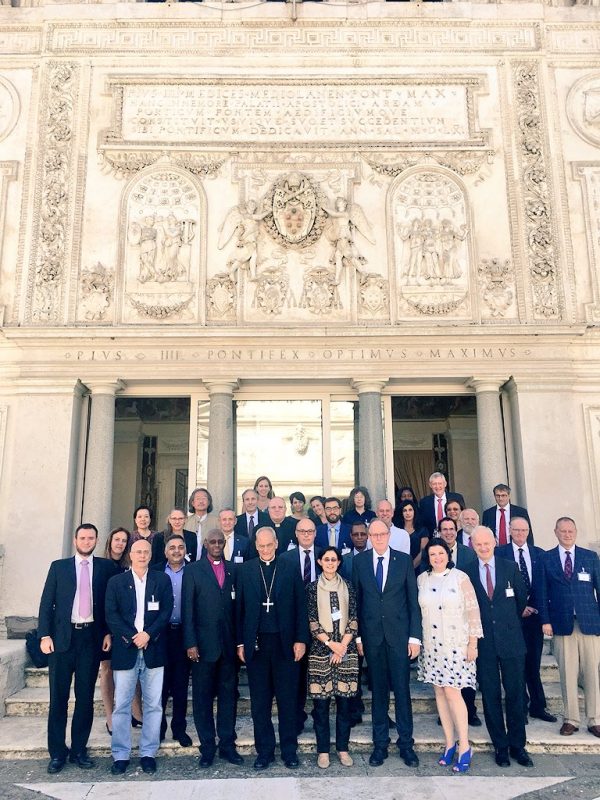Casina Pio IV, 12-13 September 2018
Concept Note
Addressing food safety and malnutrition in all its forms
Assuring all people have access to safe, affordable and nutritious foods is essential for sustaining food security and human dignity.
Malnutrition takes many forms: hunger, stunting, micronutrient deficiencies, overweight and obesity. Under the Sustainable Development Goals, improved nutrition received new impetus as a core development driver – but progress in tackling malnutrition remains mixed. There have been successes, for example, on reduced stunting and improved child survival, although both levels remain unacceptably high. However, there are negative trends on other indicators:
In 2017 the number of undernourished people in the world increased to over 815 million, up from 777 million in 2015.
155 million children, or 23%, are stunted; 52 million children, or 8%, are wasted; and 41 million, or 6%, are overweight.
Mycotoxins including aflatoxin are pervasive natural contaminants well managed in countries with strong food management systems. Unfortunately, about 1 in 10 people, mostly children, suffer from eating foods contaminated with aflatoxin.
Approximately 1.3 billion tons, or one-third of the food produced in the world for human consumption annually is lost with substantial environmental impact – food production generates a third of greenhouse emissions.
Today micronutrient deficiencies impact over 2 billion men, women and children – often with irreversible health consequences.
Worldwide obesity is rising, having tripled between 1975 and 2016. In 2016 about 13% of the world’s adult population (11% of men and 15% of women) were obese.
Poor diet is a common cause contributing to these different effects, and today is the number one risk factor for disease globally, linked to 1 in 5 annual deaths according to the recent Burden of Disease Study.
This workshop on Food Safety and Healthy Diets will explore practical actions to not only feed but also to nourish the world, and emphasise the benefits to global sustainability of human-centered food systems. It will seek to inspire participants to advocate and stimulate transformative changes to improve health and nutrition through safer, better quality foods. It will put an emphasis on safe and healthy diets for the poor, and ensuring the private sector is appropriately engaged towards this goal.
The event recognizes that no single entity or stakeholder group can address these challenges; multidisciplinary research, multi-sector collaborations and partnerships are essential implementing mechanisms.
Key Objectives
The key objectives of the workshop is to share the latest scientific evidence and innovations on food safety and healthy diets and to develop recommendations – with a focus on food systems in low- and middle-income countries – leading up to related future FAO-WHO international conferencing and actions.
Background
Multiple food safety challenges are prevalent throughout supply chains in food systems from production, harvesting, transportation, processing, storage, and manufacturing and at the consumer level. Post-harvest food loss and waste are linked to significant food insecurity, nutrition and sustainability issues.
Safe, nutritious foods need to be produced and made more available and affordable. There is growing consensus that food systems, in their current form, are failing to deliver this.
Poor diet is the number one risk factor in the global burden of disease. This includes nutritional deficiencies as well as overweight and obesity in both developed and developing countries.
The workshop will discuss the evidence on related key themes: the most common food safety challenges prevalent throughout supply chains; post-harvest food loss and waste; and the double burden. These issues will be addressed using an interdisciplinary lens, combining food and health policy perspectives as well as presenting the latest technology, innovations and state-of-the-art solutions.
http://www.pas.va/content/dam/accademia/booklet/booklet_foodsafety.pdf










